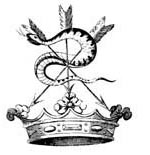
The Soul of Man Under Secularism
ON THE PRIDE OF DISILLUSIONMENT
Ed. Note: Throughout 2017, in commemoration of our fortieth year of publication, we are featuring one article per issue from the NOR’s past. This article originally appeared in our July-August 1991 issue (volume LVIII, number 7) and is presented here unabridged. Copyright © 1991.
My title comes from a little book by Oscar Wilde, The Soul of Man Under Socialism, which was published almost exactly 100 years ago, in February 1891. Wilde’s intention, as always, was to dazzle and scandalize his readers, and his title served as a typically Wildean affront to respectable opinion. It linked a concept derived from religion, the soul, with an aggressively secular ideology that drew much of its inspiration from Marx’s famous condemnation of religion as the opiate of the people.
This was perhaps the only Marxist dictum that Wilde could endorse without reservation. He was hardly an orthodox socialist. “We are all of us more or less Socialists now-a-days,” he told an interviewer in 1894; but his own version of the socialist creed celebrated the artist, not the horny-handed son of toil, and conceived of socialism, moreover, as the best hope for a new kind of individualism — a “new Hellenism,” as he referred to it in the closing pages of his non-communist manifesto. Orthodox Marxists ridiculed his aesthetic brand of socialism, but Wilde had the last laugh. His religion of art has survived the collapse of the Marxist utopia. Of all the secular religions that emerged in the 19th century, this one turned out to be the most durable — in its own way, the most seductive and insidious as well.
Socialism, as Wilde understood it, was simply another name — in 1891, in the social circles in which Wilde was at home, a deliberately provocative name — for the elimination of drudgery by machines. Wilde had no patience with those who proclaimed the dignity of labor. “There is nothing necessarily dignified about manual labor at all, and most of it is absolutely degrading.” In the future, it would be done by sophisticated machinery. The progress of science and technology would gradually eliminate poverty, suffering, and injustice. The collectivization of production would liberate the poor from want, but it would also liberate the rich from the burden of managing and defending their property. If manual labor was degrading, property was a “bore,” in Wilde’s opinion. “Its duties make it unbearable. In the interest of the rich we must get rid of it.” No less than manual labor, the administration of property distracted people from the real business of life — the cultivation and enjoyment of “personality.” Once the state took over the production of useful objects, individuals could devote themselves to the production of “what is beautiful.” The “true personality of man” would come into its own.
It will grow naturally and simply, flowerlike, or as a tree grows…. It will never argue or dispute. It will not be always meddling with others, or asking them to be like itself. It will love them because they will be different…. The personality of man will be very wonderful. It will be as wonderful as the personality of a child.
Socialism, in Wilde’s conception, would not come about through the action of the masses. The masses were too stupefied by drudgery to be capable of emancipating themselves. They were “extraordinarily stupid” in their deference to authority. Indeed, they were “not really conscious” of their own suffering. “They have to be told of it by other people” — by “agitators,” an “absolutely necessary” class, without whom “there would be no advance towards civilization.” Agitators were the political equivalent of artists: disturbers of the peace, enemies of conformity, rebels against custom. They shared with artists a hatred of authority, a contempt for tradition, and a refusal to court popular favor. Agitators and artists were the supreme embodiment of individualism, wishing only to please themselves. They took “no notice whatever of the public.” Nor did they pay the slightest attention to the “sickly cant about duty, which merely means doing what other people want because they want it; or any hideous cant about self-sacrifice.” Artists were accountable only to themselves, and their selfishness, as it might be regarded from the point of view of conventional morality, was the precondition of any genuine achievement of the imagination. All the great leaders in history, according to Wilde, had the artistic temperament. Jesus Christ Himself was an artist with an artist’s message to the world. “He said to man, ‘You have a wonderful personality. Develop it. Be yourself.'”
You May Also Enjoy
Review of Matriarch of Conspiracy by Jane Pejsa
The humble candle is a sacramental of the Church; it reminds us of Our Lord and our call to illumine this world with His light, and it is an assurance of His protection.
Francis X. Clooney, S.J., offers us a choice regarding "which images of the divine" — Christian or Hindu — are "most theologically cogent today."

